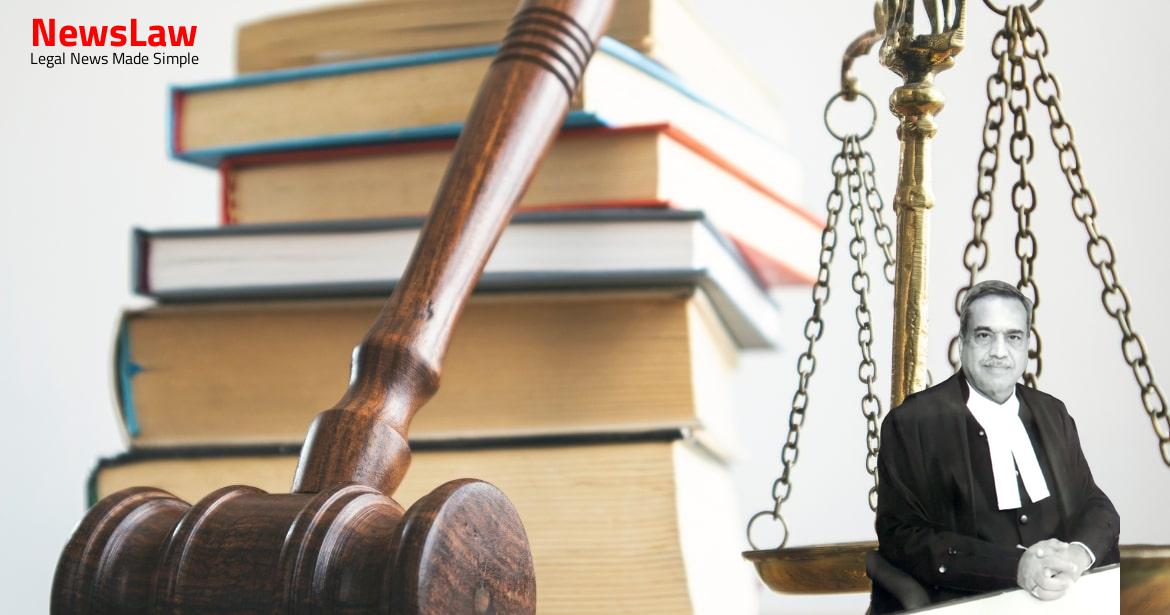In a significant legal ruling, the Supreme Court of India has delivered its judgment on the bail granting issue related to Case Crime No.608 of 2018. The judgment addresses the actions of the accused persons and the decision of the High Court. This landmark decision ensures that justice is served in the case at hand. #SupremeCourt #LegalCase #JusticeServed
Facts
- The respondents (accused persons) were apprehended for the murder of Sumit Kumar, son of the appellant-Complainant.
- The respondents applied for bail before the Sessions Court in the trial and were duly represented.
- The father of the deceased filed appeals against the orders of the High Court, questioning their legality and correctness.
- The State supported the appellant by filing a counter affidavit.
Also Read: Supreme Court Judgement: High Court’s Order Upheld in Case of [Respondent] v. [Petitioner]
Issue
- High Court granted bail to the accused.
- Issue is whether High Court was justified in doing so.
- Learned counsel for both parties have been heard on this issue.
Also Read: Supreme Court Judgement: Settlement of Dispute after Lok Adalat Award
Analysis
- The High Court made a jurisdictional error by not providing any reasons for granting bail to the accused Subhash in Case Crime No.608 of 2018.
- The lack of reasons for granting bail goes against the established legal principles and previous court decisions.
- It is crucial for courts to give reasons while granting bail, as highlighted in various previous cases like Ajay Kumar Sharma vs State of U.P. & Ors., Lokesh Singh vs State of U.P. & Anr., and Dataram Singh vs. State of U.P. & Anr.
- The High Court’s order lacked a proper explanation for granting bail and did not consider the relevant material presented by the prosecution.
- The court should have applied its mind to the facts and material evidence before making a decision on bail, which was not seen in this case.
- As a result, the Supreme Court set aside the bail granted to Subhash in Case Crime No.608 of 2018.
- It is essential for courts to consider all relevant factors and provide detailed reasons when granting or denying bail.
- The Sessions Judge was right in rejecting the bail applications filed by the accused persons.
- The FIR, antecedents of the accused persons, and the manner in which the offence under Section 302 IPC was committed were considered.
- The High Court did not take relevant factors into consideration while granting bail to the accused persons.
- The accused persons have not violated any condition of bail granted previously, but this is not sufficient reason to grant bail in this case.
- Considering the entire scenario of the case, it was deemed that this was not a fit case for grant of bail to the accused persons by the High Court.
- The Court should not interfere in the impugned orders granting bail to the accused persons.
Also Read: Definition of ‘Employee’ Under Section 2(f) of the Act Case
Decision
- Respondents (accused persons) directed to surrender in the concerned Sessions Court for custody as under trial.
- Sessions Judge to conduct trial strictly in accordance with law and on its merits expeditiously.
- No influence to be taken from any observations made in this order.
- Impugned orders set aside.
- Appeals allowed, bail applications dismissed.
Case Title: MAUJI RAM Vs. STATE OF UTTAR PRADESH
Case Number: Crl.A. No.-001150-001150 / 2019



